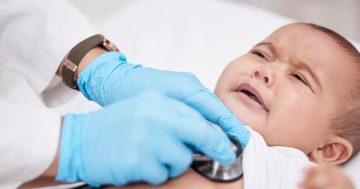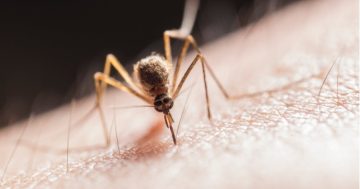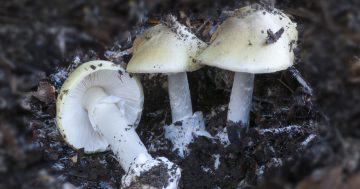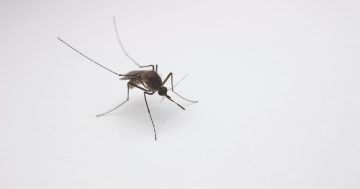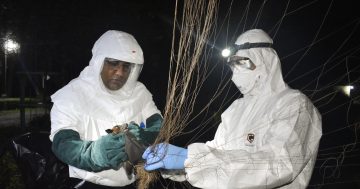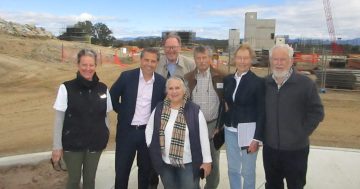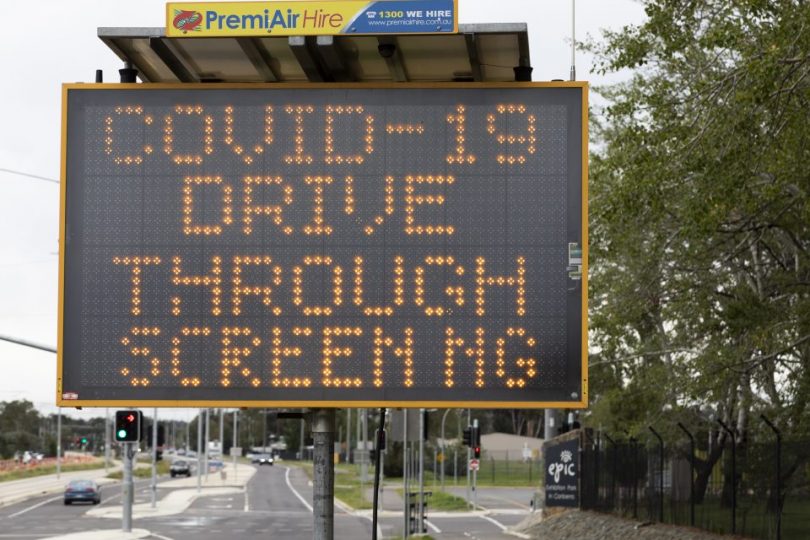
Screening continues across the ACT and Southern NSW, but COVID-19 cases appear to have plateaued. Photo: File.
The number of COVID-19 diagnoses across the two major southern NSW Local Health Districts is unchanged, but there are still concerns that community transmission may be occurring in the regions.
There have been 42 confirmed cases of COVID-19 in the Murrumbidgee Local Health District (MLHD) since Saturday, April 4, while there have also been no new cases in the Southern NSW Local Health District over the same period. The count in the region bounded by Cooma, Goulburn and the South Coast is unchanged at 53.
Southern NSW Local Health District (SNSWLHD) says that 2232 tests have been administered and the figure includes the results of tests administered over the past 24 hours. None of these confirmed cases have required hospitalisation and are self-isolating accordingly.
Two new cases of COVID-19 have been recorded in the ACT in the past 24 hours, taking the Territory total to 99.
But what’s worrying Murrumbidgee LHD chief executive Jill Ludford is the one confirmed case of unknown origin in her District.
Ms Ludford told Region Media today that 39 of the 42 confirmed cases were acquired overseas and two cases were acquired locally, from a known positive person.
“But we do have one person who has an unknown contact,” she said. “That’s really concerning, that means we need to test more”.
“If we test early we can isolate close contacts who may not know they have COVID and that reduces the spread across the community. We know it’s tough in isolation at home, but please continue not to gather in public.
“Easter this year will not be as we know it”.
Ms Ludford said that as of 8 am today, a total of 2188 people had been tested in the region.
The number of deaths from COVID-19 in the MLHD remains at one, the total number of people hospitalised is four and the total number of recovered cases is 10.
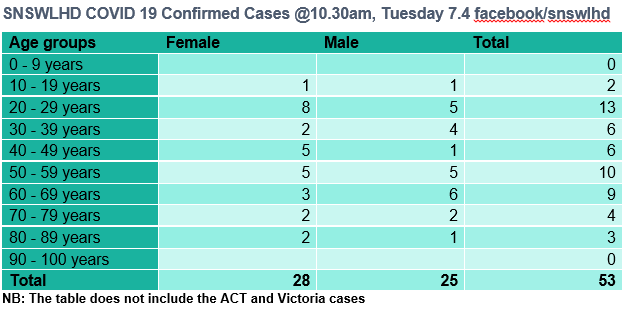
Age groups.
The dominant age bracket in both regions is in the 20-29 years group. There are 13 cases recorded in the Southern NSW LHD and 14 in Murrumbidgee.
The second most numerous bracket is the older age group, although amongst people over 80, there have been relatively few infections. In Southern NSW, 13 cases have been recorded across the 60-79 year age brackets, while in the Murrumbidgee region there are a total of of 18 positive COVID-19 cases in the older sector.
Murrumbidgee Local Health District has launched a campaign to entice health workers back to the District asking them to ‘put yourself in the picture’. Local Health authorities say they are still predicting an ongoing increase in COVID-19 positive cases, despite the recent plateau in numbers and need to be prepared as a District for what lies ahead.
The most common symptoms of COVID-19 are fever, sore throat and dry cough. Symptoms will generally appear three to four days after exposure to the virus but can be up to 14 days later.
Members of the public are advised to minimise travel, increase personal awareness around hand hygiene and practice social distancing.
Anyone who believes they have may have contracted the COVID-19 virus (ie returned travellers, or those who have come in contact with a confirmed case and are showing symptoms: fever, sore throat, dry cough and shortness of breath) are advised in the first instance to:
- Call the free-call coronavirus hotline 1800 022 222 and receive advice on the best course of action depending on your symptoms and risks. Medical staff will direct people to the nearest hospital or respiratory clinic, or advise them to stay home and self-monitor, or contact their GP, or
- Contact your GP to arrange an appointment (let GP practice know in advance if you have symptoms) or the Southern NSWLHD Central Intake Service – 1800 999 880 (option 1) before attending
- Call the Murrumbidgee COVID-19 Hotline on 1800 831 099 for assessment (7:00 am – 11:00 pm)







